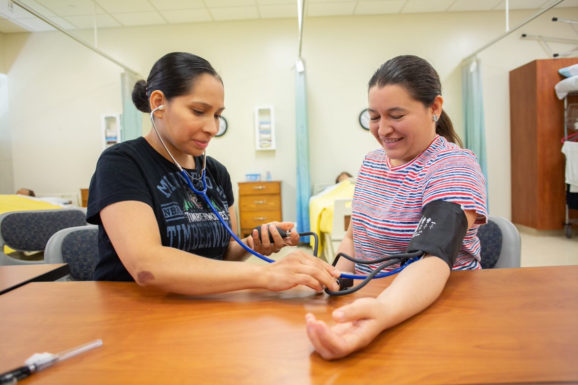Racism in Medicine
West End Healthline
By Jenny Zhang, MD
The use of race in medicine has been an area of fierce debate for many years. Supporters of race-based medicine claim that racial categories may have genetic similarities among underlying populations that could be useful. Opponents raise alarm to the perpetuation of racist beliefs by continuing to use race inappropriately in medicine. To understand this debate, we need to understand the history of race and racism in medicine.
What is race?
Race is a social construct that was created largely to justify slavery and imperialism. Racial categories are based on perceived physical characteristics, not actual biological differences. They have also evolved over time and span large geographical areas. For example, the 2020 U.S. Census classifies “White” as anyone who identifies with European, Middle Eastern, or North African ancestry.
What is race-based medicine?
Despite the inconsistency in racial categories over space and time, race is often used to guide medical decisions. Race-based medicine works under the assumption that certain races suffer from different diseases or suffer differently from diseases. In reality, the scientific evidence shows that there are more genetic similarities between different races than there are between people who are considered the same race. It is important to recognize that race is not the same as geography or ethnicity. It is scientifically accurate to consider Ashkenazi Jews to be at higher risk for breast cancer because of their genetic background. They are an ethnic group, not a race. It is inappropriate to recommend a different blood pressure medication for a patient based solely on their Black racial identity.
Racism in medicine
There is unfortunately a long history of racism in medicine. One sobering example is Dr. James Sims, often regarded as the father of modern gynecology, who did not believe that Black people felt pain, and thus performed surgeries to practice his techniques on enslaved women without any anesthesia. Sadly, the racist belief that Black people feel less pain persists even today. A 2016 study found that half the sample of white medical students and residents believed that Black people felt less pain and subsequently made less accurate treatment recommendations.
How does race actually impact our health?
Chronic stress from racism can change our epigenetics — it can change how our DNA is read, but it does not change the actual DNA sequence itself. Chronic stress can also lead to continued release of stress hormones, which over time puts people at higher risk for chronic diseases like heart disease. It is important to recognize that racism is impacting our health, not race itself.
How should medicine change its use of race?
The current use of race in medicine is dangerous because it perpetuates racist beliefs that people of color are genetically inferior, and it distracts us from facing the real issue of structural racism. During this COVID-19 pandemic, there have been racial disparities in infection and death rates. Recent research from the Brookings Institution showed that the age-adjusted death rate for Black people is more than three times that of white people, and for Latinx people it is at least twice their white counterparts. These differences are thought to be related to a higher representation of Black and Latinx populations in service occupations and a greater likelihood for members of those groups to live in high population density cities. The disparities are not due to weaker biology. They are due to weak infrastructure and the inequities embedded in our lives.
So what can we do to dismantle racism in medicine?
We can start with reconsidering our use of race in medicine. It is important to ask ourselves: What is the rationale behind the use of race in this guideline? How was the racial category defined in this research study? We must ensure that, as a social construct, race is only considered as a social risk factor. As three physicians so eloquently explained in the NEJM article, “Researchers and clinicians must distinguish between the use of race in descriptive statistics, where it plays a vital role in epidemiologic analyses, and in prescriptive clinical guidelines, where it can exacerbate inequities.”
Racism is a public health crisis, and no one is immune to it. But there is hope that we can make positive changes in our society. Physician groups, such as the Minnesota Academy of Family Physicians, have advocated for ending race-based medicine. As patients, we can challenge our healthcare providers to think more critically and evaluate the evidence when our race is used to guide a treatment decision.
As Dr. Martin Luther King Jr. said, “The time is always right to do what is right.”
Jenny Zhang, MD, works at Allina Health United Family Physicians. To schedule an appointment with her or one of her colleagues, please call 651-241-5200.




